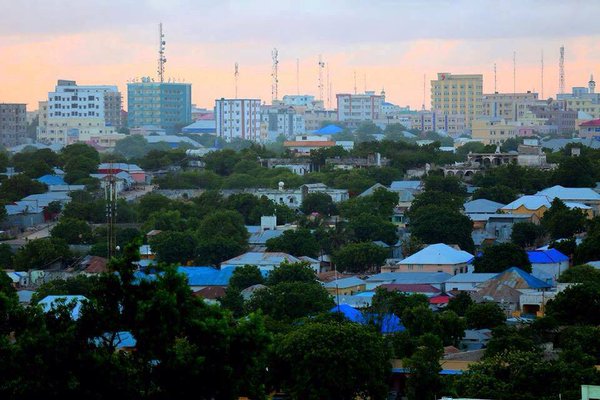The report deemed ‘fake’ by the government and journalists in Somalia alleged that Somali prime minister Hassan Khaire admitted that he found it highly complicated to fight against corruption and improve the country’s tax receipts during a meeting in early July with officials from Britain, Norway and the European Union in Hargeisa, Somaliland’s capital.
By John Thiongo, john@alleastafrica.com
NAIROBI – Somalia’s government has denied a dubious report by a news website which alleged that Somali prime minister admitted that he had problems in improving the country’s tax system and fight corruption owing to terrorism funding by top Somali businessmen.
The claims deemed ‘fake’ by the government and journalists that were made in the Indian Ocean Newsletter, especially the issue 1455 (dated 21 July 2017) and published by www.africaintelligence.com alleged that Somali prime minister Hassan Khaire admitted that he found it highly complicated to fight against corruption and improve the country’s tax receipts during a meeting in early July with officials from Britain, Norway and the European Union in Hargeisa, Somaliland’s capital.
However, Somaliland, a breakaway northern Somalia republic which broke away from the rest of Somalia in 1991 usually bans visits by Somali officials, and arrested low-ranking Somali officials who tried to visit Somaliland before, making it unfeasible for a sitting Somali prime minister to pay visit to Somaliland.
“The FGS states that no such meeting to discuss the integrity and conduct of the above mentioned individuals and businesses took place.” Somali government said in a statement on Monday.
Among businessmen mentioned in the dubious piece is Ahmed Mohamed Yusuf, the CEO of Hormuud, Somalia’s largest telecom firm, Mohamed Yusuf Ahmed Alore, the chief of Salaam African Bank, a new Somali bank and Abdirashid Duale, the CEO of Dahabshiil, Somalia’s most prominent remittance company and bank, certain individuals that Somali officials talked highly of their contribution to the recovery of the country’s financial system shattered by decades of conflict.
“The FGS is concerned that the ill motivated article is aimed at undermining the valuable relationship between the business community and the government.” Somali government said, affirming that that the individuals mentioned in the article have been supportive of the government’s effort in stabilizing the country and continue to play a critical role in the development agenda.
Despite challenges, Somalia which is recovering from decades of war has made an impressive recovery progress in recent years, thanks to the telecom sector which enabled a prevalence of mobile money usage (73%) compared to the 15% of the population who have accounts with formal banks, according to the World Bank.
A 2016 research by the World Bank finds 88% of Somalis above the age of 16 own at least 1 SIM card, while 83% of SIM card owners use mobile money, an achievement far higher than more developed countries in Sub Saharan Africa.
In addition to that, remittances has long been a lifeline for thousands of families, who rely on it to get food and shelter, pay for education and health services, and sustain their small businesses. It is also a testament to something else: the incredible expression of faith, generosity, and solidarity that is common among Somalis.
Before new government was instituted in the country in 2012 and 2016, Somalia was the longest-running example of complete state collapse in post-colonial history. With no official banks, remittances sent through a system called the hawala, the Arabic word for “transfer,” rose as an alternative.
The hawala had begun in the 1970s when Somali migrant workers were trying to get around the country’s foreign exchange controls, which regulated inflows of currency income and required exporters to exchange half their foreign earnings at the overvalued, state-set rate. Migrant workers in the Middle East used the informal system to send money back home to families and to do business transactions.
(Additional reporting by Judy Maina, editing by Timothy Moses)
Copyright ©2017 Alleastafrica.com All rights reserved. The information contained in Alleastafrica.com may not be published, broadcast, rewritten, or redistributed without the prior written authority of Alleastafrica.com



